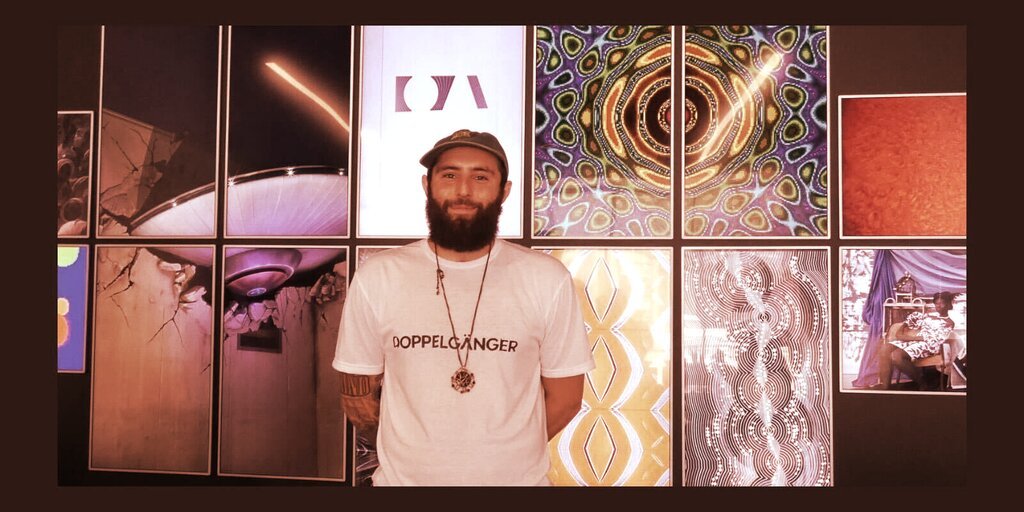Menu
Search
About
A new art installation co-founded by prominent NFT photographer Justin Aversano has opened its doors on the iconic Third Street Promenade in Santa Monica, California. Quantum Space LA is the latest in a growing trend of physical NFT galleries, in which artists can showcase their digital work in a real-world setting.
Aversano, known for the in-demand Twin Flames NFT photography collection, used the grand opening of Quantum Space LA on Friday to launch his newest project, Doppelgänger, a collection of 1,000 outtakes from Twin Flames. It continues Aversano's theme of photographing twins and turning those images into collectible NFT assets.
NFTs are cryptographically unique tokens linked to digital and sometimes physical content, providing proof of ownership, membership to an exclusive club, or other potential perks. They are often used to represent digital goods such as photos, illustrations, and collectibles.
Quantum Art is a photography-centric NFT platform that Aversano co-founded last fall. In February, the platform raised $7.5 million in funding. The Santa Monica space was announced in April ahead of its grand opening this weekend.
Large flat-screen televisions line the walls throughout the location, displaying images from various digital artists who have partnered with the startup to showcase and sell their work. Photos of twin siblings taken by Aversano all around the world are projected onto large hanging curtains in the center of the space.
"Twin Flames basically gave birth to Quantum. The success of Twin Flames, the community around Twin Flames, pushed me to support other photographers," Aversano told Decrypt at Friday’s opening event.
Aversano said that the Santa Monica space is an experiment; the next opening is planned for this fall in New York, with hopes to launch similar installations worldwide."We plan to open one a month next year," Aversano said. "We want to have 20 to 50 spaces around the world."
“I'm thrilled and really interested to see how it kind of plays out, and how we could potentially change the narrative of ‘NFTs are bad’ and ‘NFTs are not eco-friendly,’” said UnicornDAO’s Rebecca Lamis, who also manages Quantum Space LA. “I think there's a lot of impact we can do in that capacity.”
Lamis said that the June 3rd opening was a soft launch of the space, but passersby appeared to be immediately interested, clamoring to come into the space to find out what it was all about.
As Aversano explained, the Quantum Spaces are paid for with the money raised from selling NFT minting keys ahead of time. The Quantum Keys were minted in March for the LA location, and now start at 4.15 ETH ($7,700) on secondary marketplaces. NFT holders gain access to an exclusive area of the gallery, and can use the venue to host events.
"We have enough treasury funding to work with artists and commission them to do mints," Aversano told Decrypt. He added that each future Quantum Space location will mint its own NFT collection to ensure that each location is unique and has its own membership group.
Aversano explained that Quantum is not just about him, but about also enabling other artists and creators through his own prosperity. "I was able to uplift other artists with my success, which is what I love to do," he said. “And I want to share the abundance, because that's what being an artist and a good person is about—to share the wealth."
While Quantum Art was founded with an initial focus on photography, the platform will branch out to encompass other types of artwork. Aversano said that it could include contributions from sculptors, painters, digital artists, fashion designers, and others building the nascent metaverse.
"We want to put up quality art, with a quality community of people that get together and thrive off each other, and support each other," Aversano said.
"I think that's why IRL spaces are important. Especially after a pandemic, we want it even more," he added. "Quantum is in the perfect position to build these community hubs around the world."
Copy article link
Author
Administraroot

